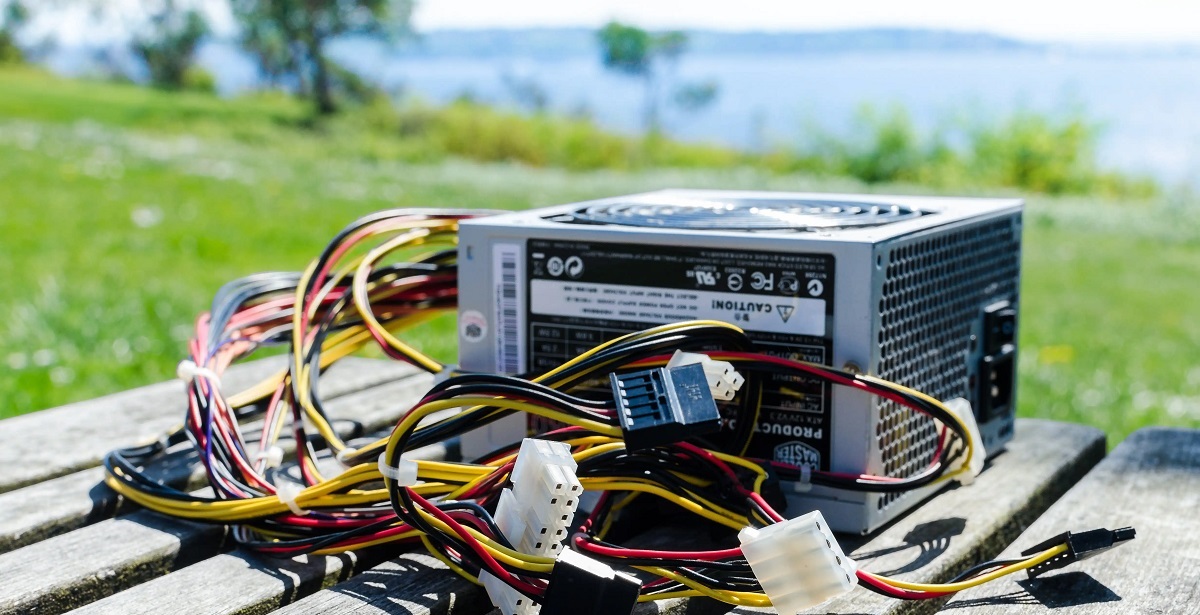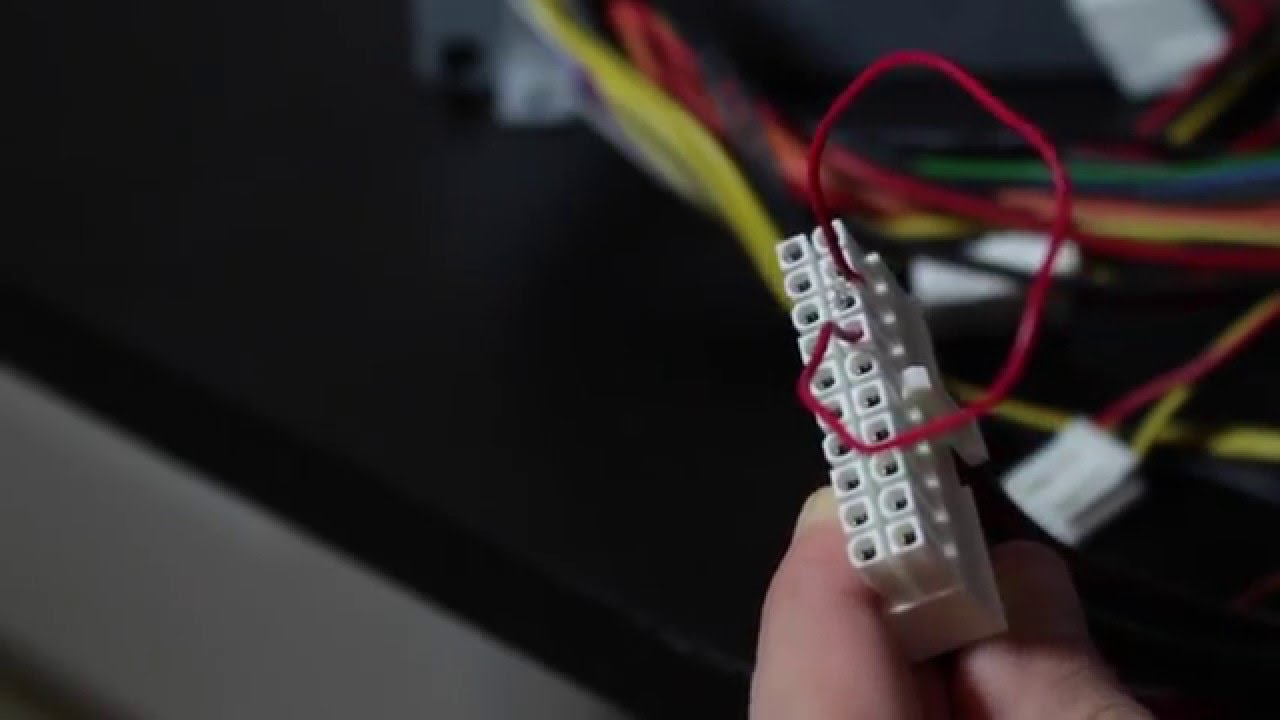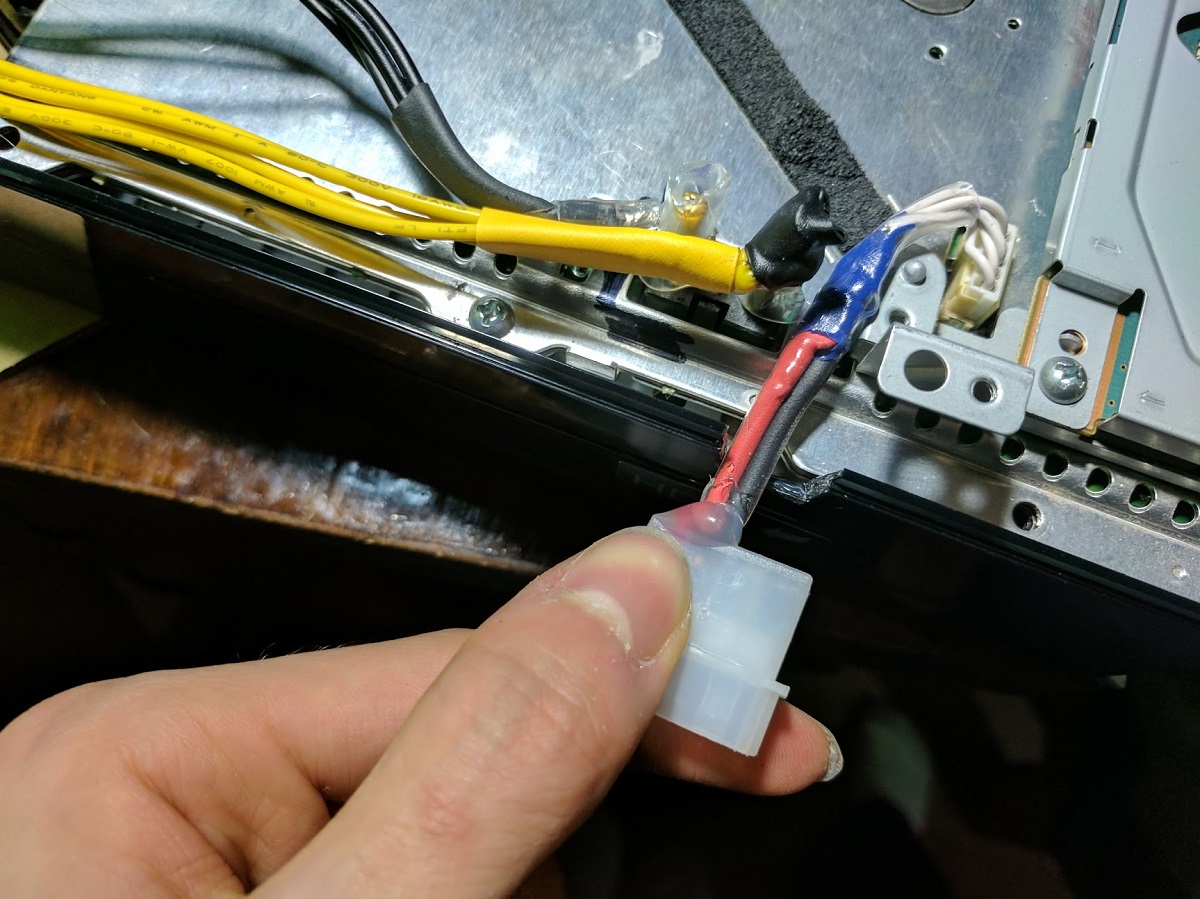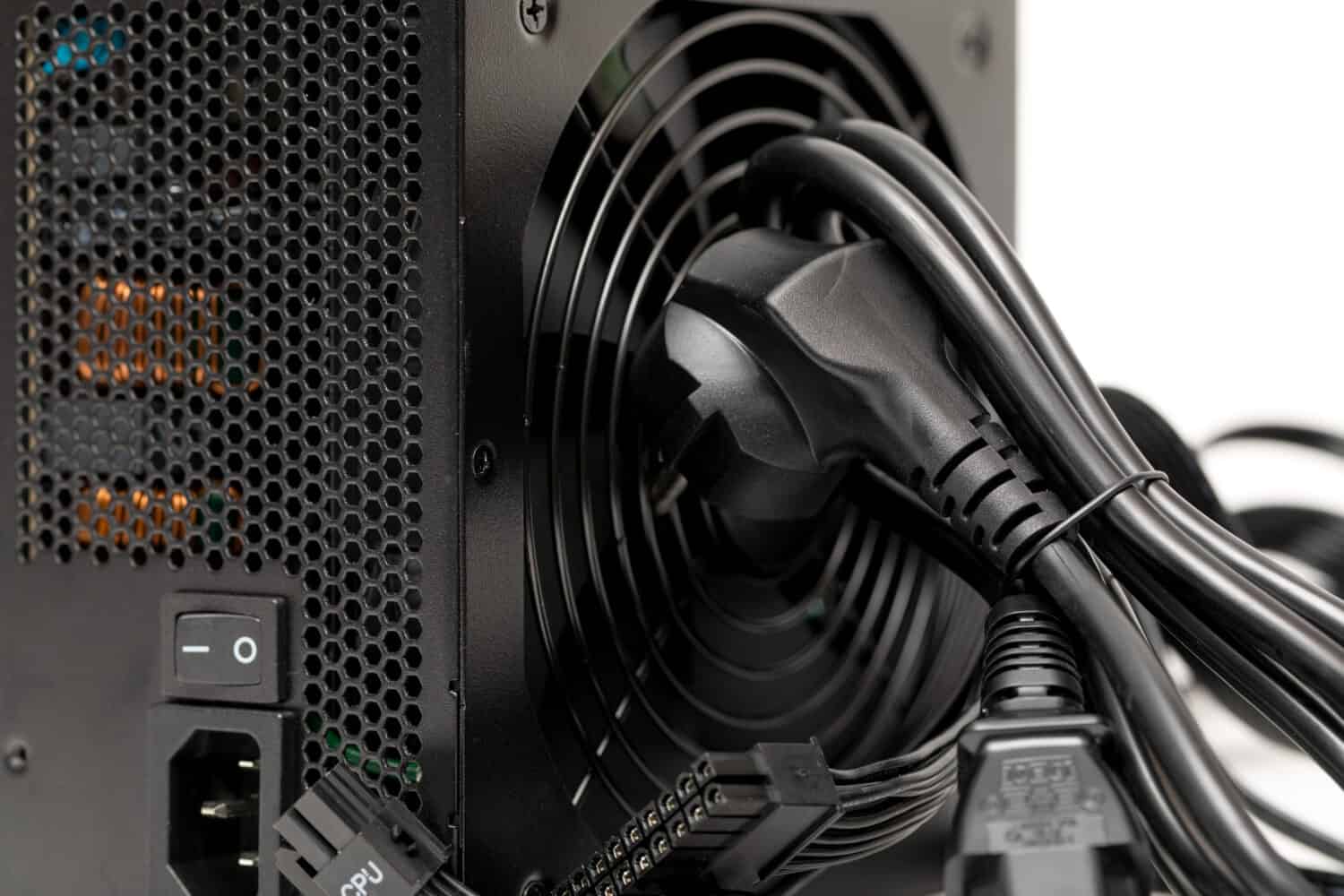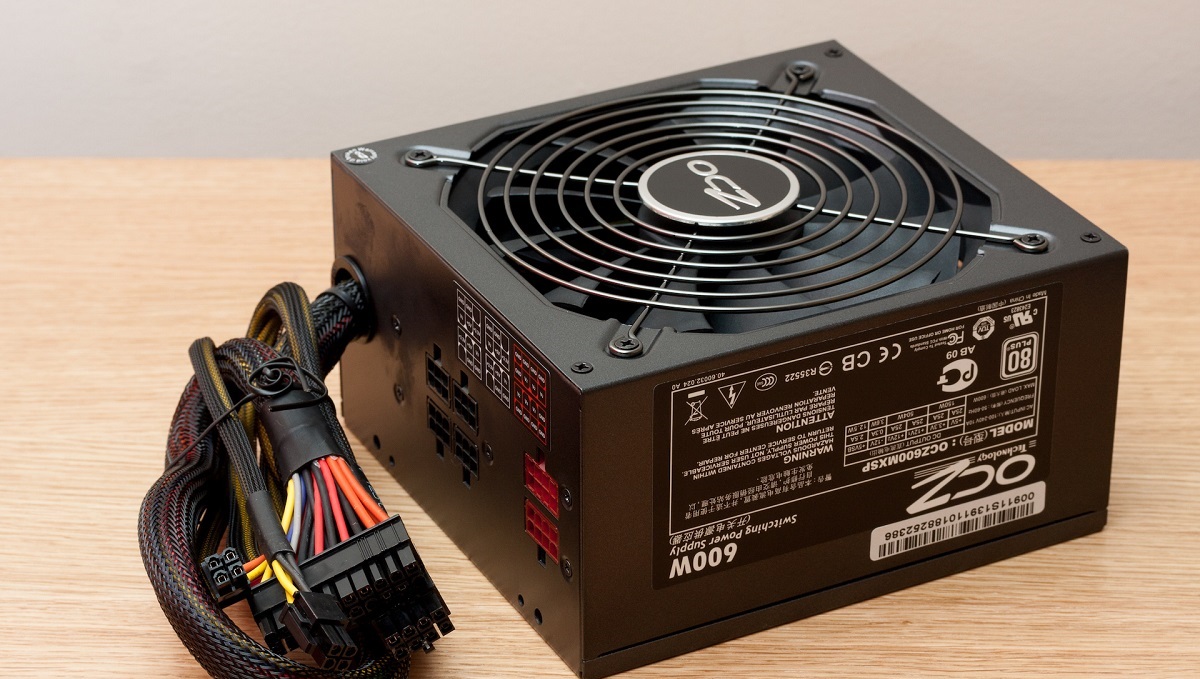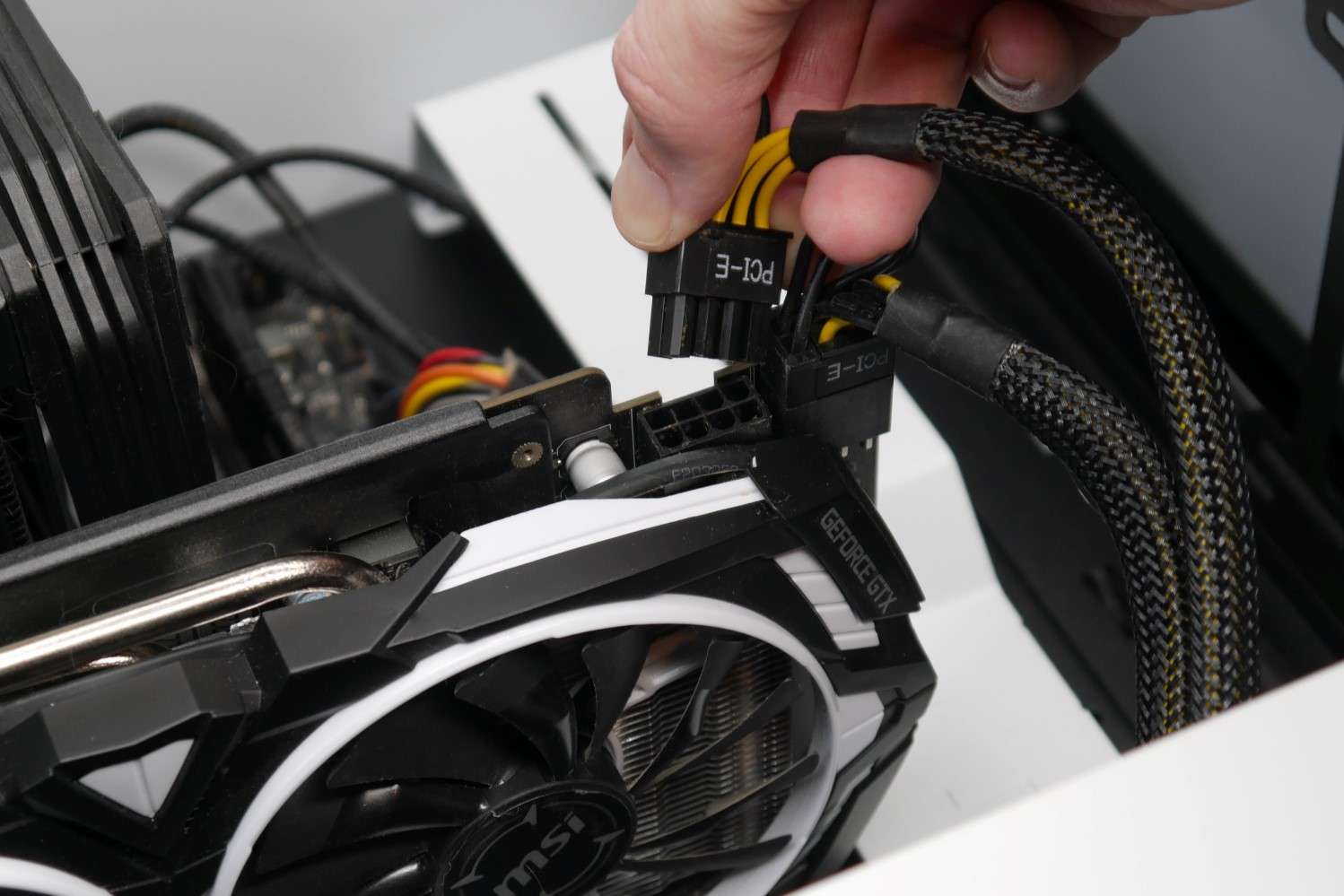Introduction
Having a sufficient power supply is crucial for the smooth and optimal functioning of your computer system. The power supply unit (PSU) is responsible for supplying power to all the components of your computer, including the motherboard, CPU, GPU, and other peripherals. However, if your PSU does not provide enough power to meet the demands of your system, you may face various issues that can adversely affect your computer’s performance and stability.
It is important to note that the power requirements of a computer system can vary based on the components installed. High-end gaming rigs and workstations generally require a more powerful PSU compared to standard office computers. Therefore, it is essential to carefully consider your system’s power requirements and ensure that your PSU can adequately meet those needs.
In this article, we will explore the signs of an inadequate power supply and the effects of insufficient power on your computer system. Understanding these factors will help you identify the symptoms associated with a weak PSU and take appropriate measures to rectify the situation.
Signs of Inadequate Power Supply
An inadequate power supply can manifest through various signs and symptoms. By recognizing these indicators, you can address the issue before it causes significant damage to your computer system. Here are some common signs that may suggest your PSU is not providing enough power:
- Frequent system reboots or shutdowns: If your computer frequently reboots or shuts down unexpectedly, it could be due to a power supply that cannot handle the power demands of your system. This is especially noticeable when you are performing resource-intensive tasks such as gaming or video editing.
- Random system freezes or crashes: Insufficient power can lead to system freezes or crashes, where your screen locks up and becomes unresponsive. This can occur when the PSU is unable to supply enough power to the components, causing instability in the system.
- Unstable or inconsistent performance: If you notice a decrease in overall system performance, such as sluggishness, slow startup times, or applications taking longer to load, it could be a sign of an inadequate power supply. Insufficient power can hamper the performance of your CPU, GPU, and other hardware components, resulting in reduced efficiency and responsiveness.
- Unexplained and frequent blue screen errors: An insufficient power supply can trigger blue screen errors, also known as BSOD (Blue Screen of Death). These errors occur when the system encounters a critical hardware or software issue and is forced to stop to prevent further damage. In some cases, a weak PSU may be the underlying cause of these errors.
- Strange noises or burning smells: If you notice unusual sounds, such as buzzing, whining, or clicking noises, coming from your power supply unit, it could indicate a hardware problem. Additionally, if you detect a burning smell or notice any signs of overheating, it is crucial to immediately address the issue, as it can potentially damage your system components.
Keep in mind that these signs may also indicate other hardware or software issues. Therefore, it is essential to thoroughly diagnose and identify the root cause before concluding that your power supply is inadequate. Consulting with a professional or an experienced technician can help you determine the best course of action.
Effects of Insufficient Power
Insufficient power supply to your computer system can have a range of detrimental effects. These effects not only impact the performance and stability of your system but can also lead to potential hardware damage. Understanding the consequences of insufficient power is crucial for maintaining the longevity and optimal functionality of your computer. Here are the main effects of inadequate power:
- System Shutdowns and Crashes: One of the primary effects of insufficient power is frequent system shutdowns and crashes. When your PSU cannot provide enough power to the components, it can cause the system to abruptly shut down or crash, resulting in data loss and potential damage to your operating system.
- Overheating: Inadequate power supply can lead to increased heat generation within the components. Without sufficient power, the cooling mechanisms, such as fans and heatsinks, may not be able to function optimally, causing the system to overheat. Overheating can lead to reduced performance, instability, and even permanent damage to the hardware.
- Performance Issues: Insufficient power can severely impact the performance of your system. The CPU and GPU, in particular, require a stable and adequate power supply to operate at their maximum potential. When these components receive inadequate power, they may underperform, resulting in slower computing speeds, decreased frame rates in games, and overall diminished system responsiveness.
- Hardware Damage: If your power supply consistently fails to meet the power demands of your system, it can cause long-term damage to the hardware components. Over time, inadequate power may lead to premature wear and tear of the components, shortened lifespan, and eventual hardware failure.
It’s important to note that the effects of insufficient power can vary depending on the specific components and their power requirements. High-end graphics cards and powerful processors, for example, may be more susceptible to power-related issues compared to more modest setups. Regularly monitoring your computer’s power supply and ensuring it meets the demands of your system can help prevent these negative effects and keep your computer running smoothly.
System Shutdowns and Crashes
One of the most noticeable effects of inadequate power supply is frequent system shutdowns and crashes. When your power supply unit (PSU) is unable to meet the power demands of your computer system, it can result in sudden and unexpected shutdowns or crashes. Understanding why these shutdowns and crashes occur can help you diagnose the issue and take the necessary steps to rectify it.
Inadequate power supply can cause the following problems:
- Insufficient Power to Support Components: When your PSU doesn’t provide enough power, the components of your computer won’t receive the necessary energy to function properly. This can lead to instability and cause the system to shut down abruptly. The power requirements of modern components, such as high-end graphics cards and powerful processors, can be demanding, and a weak PSU may struggle to keep up.
- Overloading the PSU: If you have upgraded or added new components to your system without considering the power requirements, it can put a strain on the PSU. Exceeding the power capacity of the PSU can result in an overload, triggering automatic shutdowns as a safety measure. This is especially common when running resource-intensive tasks, such as gaming or video rendering.
- Inadequate Power for System Start-Up: In some cases, the PSU may have trouble providing enough power during the boot-up process. This can lead to the system failing to start or experiencing repeated restart loops. Insufficient power during start-up can also cause the system to shut down unexpectedly after a short period of operation.
- Power Fluctuations and Instability: An inadequate power supply can result in power fluctuations and instability. These fluctuations can cause voltage drops or spikes, which can trigger system shutdowns or crashes. Unstable power can also disrupt the functioning of other hardware components, leading to further issues and potential damage.
If you are experiencing frequent system shutdowns and crashes, it is crucial to identify whether an insufficient power supply is the underlying cause. Assess your system’s power requirements, ensure that your PSU is capable of meeting those demands, and consider factors such as overclocking or power-hungry peripherals that may place additional strain on the power supply. Upgrading to a higher wattage PSU or consulting with a professional can help eliminate these issues and provide a stable power supply for your computer system.
Overheating
Insufficient power supply can lead to overheating issues within your computer system. When the power supply unit (PSU) fails to deliver adequate power to the components, it can cause several problems that result in increased temperatures and potential damage. Understanding how inadequate power can contribute to overheating is vital for maintaining the longevity and optimal performance of your computer.
Here are the main factors that link insufficient power supply to overheating:
- Insufficient Cooling: Inadequate power can hinder the proper functioning of cooling mechanisms within your system. A weak PSU may not have enough capacity to power the fans and heatsinks, reducing their effectiveness in dissipating heat. This can cause the temperature within the system to rise and contribute to overheating of components.
- Increased Energy Consumption: When a computer system is not receiving sufficient power, it can lead to increased energy consumption. Components may work harder or remain active for longer periods, generating more heat as a byproduct. Over time, this sustained increase in energy consumption can cause the system to overheat.
- Reduced Stability of Components: Inadequate power supply can result in the instability of components, leading to erratic performance and increased power fluctuations. This instability can cause components to work inefficiently, resulting in excess heat generation. Components such as the CPU and GPU, which rely on stable power delivery for optimal performance, are particularly susceptible to overheating due to insufficient power.
- Thermal Throttling: When a component reaches a certain temperature threshold, it may activate thermal throttling as a self-preservation mechanism. Thermal throttling reduces the performance and power draw of the component to prevent overheating. However, if the PSU cannot provide sufficient power, the component may reach these temperature thresholds more frequently, compromising performance and leading to reduced system efficiency.
Overheating can have severe consequences for your computer system, such as reduced performance, system instability, and even permanent damage to components. To prevent overheating caused by insufficient power supply, ensure that your PSU is capable of delivering enough power to meet the demands of your system. Regularly clean and maintain your cooling system, and consider additional cooling solutions, such as improved airflow or aftermarket coolers, if necessary. By addressing the issue of insufficient power, you can help mitigate the risk of overheating and ensure the optimal functioning of your computer system.
Performance Issues
Insufficient power supply can significantly impact the overall performance of your computer system. When the power supply unit (PSU) fails to deliver enough power to the components, it can result in various performance issues that affect the responsiveness and efficiency of your system. Understanding these performance issues will help you identify whether inadequate power is the culprit and take appropriate measures to improve your computer’s performance.
Here are the main performance issues that can arise due to insufficient power:
- Sluggishness and Slow Responsiveness: When your system lacks sufficient power supply, it can lead to sluggishness and a noticeable decrease in responsiveness. Tasks that used to be performed quickly may take longer to complete, and your overall computing experience may feel slower. Components, such as the CPU and GPU, require stable and adequate power to operate at their maximum potential, and insufficient power can severely hinder their performance.
- Lag and Reduced Frame Rates: If you’re a gamer, inadequate power can diminish your gaming experience. Insufficient power supply can lead to lag and reduced frame rates, making games appear choppy and causing delays in your inputs. The GPU, in particular, relies heavily on consistent and sufficient power for delivering smooth graphics and high frame rates. When the PSU cannot meet its power demands, the GPU’s performance suffers, resulting in gaming performance issues.
- Slow Startup and Application Loading Times: An insufficient power supply can affect the startup time of your system and the loading speed of applications. During startup, your computer requires additional power to initialize all the components and software. If the PSU cannot provide enough power, the system may experience delays or even fail to boot up. Similarly, applications may take longer to load, as the insufficient power supply hampers the smooth operation of the CPU and other components.
- Reduced Overall System Efficiency: Inadequate power supply affects the efficiency of your entire system. When components don’t receive enough power, they may underperform, leading to decreased overall system efficiency. Task completion times may increase, productivity may suffer, and resource-intensive applications may struggle to run smoothly. To ensure optimal performance and efficiency, it’s crucial to have a power supply that meets the power demands of your system.
If you are experiencing performance issues with your computer, it is essential to assess your power supply and determine whether it can adequately meet the power requirements of your system. Consider upgrading to a higher wattage PSU that can provide the necessary power to support all your components. Alongside ensuring a sufficient power supply, regular maintenance, updating drivers, and optimizing system settings can further enhance the performance of your computer system.
Hardware Damage
Insufficient power supply can pose a significant risk of hardware damage to your computer system. When your power supply unit (PSU) fails to supply enough power to the components, it can result in various issues that can impact the longevity and functionality of your hardware. Understanding the potential risks and consequences of inadequate power is crucial for protecting your investment and ensuring the reliability of your computer system.
Here are the main risks of hardware damage due to insufficient power:
- Overheating and Component Stress: Inadequate power supply can lead to increased temperatures within your system. When components don’t receive enough power, they may struggle to perform optimally, resulting in higher heat generation. Over time, this sustained overheating can cause damage to the affected components, reducing their lifespan and potentially leading to permanent failure.
- Power Surges and Electrical Instability: In situations where the PSU cannot meet the power demands of the system, it may produce power surges or experience electrical instability. These power fluctuations can damage sensitive computer components, such as the motherboard, RAM, and storage devices. Power surges can cause sudden spikes in voltage that exceed the tolerance of the components, resulting in irreparable damage.
- Excessive Wear and Tear: Insufficient power supply can put undue stress on your computer’s components. When components consistently operate underpowered, they tend to work harder than necessary, leading to excessive wear and tear. This accelerated deterioration can reduce the lifespan of the components, potentially resulting in premature failure and the need for expensive replacements.
- Data Corruption and Loss: Power supply issues can sometimes cause data corruption or loss. Unexpected power outages or sudden shutdowns due to inadequate power can disrupt the saving or retrieval of data, leading to file system errors. In severe cases, vital files and data may become inaccessible or completely lost, requiring data recovery efforts or resulting in permanent data loss.
- Cascade Effects: Damage to one component due to insufficient power can have cascading effects on other components. For instance, a failing power supply can send unstable power to the motherboard, causing damage to other connected components like the CPU or memory modules. This domino effect can result in multiple hardware failures, necessitating extensive repairs or replacements.
To mitigate the risk of hardware damage due to insufficient power, it is crucial to ensure that your PSU is capable of providing sufficient power to meet the demands of your system. Regularly monitor the power supply and consider upgrading to a higher wattage PSU if necessary. Additionally, using surge protectors and uninterruptible power supplies (UPS) can help safeguard your system against power fluctuations and provide an extra layer of protection for your hardware.
Upgrading Your Power Supply
If you are experiencing issues related to insufficient power supply, upgrading your power supply unit (PSU) can be a viable solution. Upgrading your PSU can not only address the immediate problems but also ensure that your computer system has a stable and reliable power source for optimal performance. Here are some considerations and steps to follow when upgrading your power supply:
- Calculate Your Power Requirements: Before upgrading your PSU, it is essential to calculate the power requirements of your system. Consider the wattage needs of your components, including the CPU, GPU, motherboard, and any other peripherals. This calculation ensures that you select a PSU with sufficient wattage to handle your system’s power demands.
- Choose a Reliable and Efficient PSU: When selecting a new PSU, prioritize quality and efficiency. Look for reputable brands and models known for their reliability and stability. Choose a PSU with an appropriate wattage rating and ensure it is compatible with your system’s form factor, such as ATX, SFX, or TFX.
- Consider Future Upgrades and Expansion: Factor in any potential future upgrades or additions to your system. If you plan to add more powerful components or expand your system, it’s wise to choose a PSU with a slightly higher wattage than your current requirements to accommodate future needs.
- Ensure Proper Installation: Proper installation is crucial for the safe and efficient operation of your new PSU. Follow the manufacturer’s instructions, use the correct cables, and ensure all connections are secure. Improper installation can lead to power fluctuations, system instability, and potential damage to your components.
- Dispose of the Old PSU Safely: When you upgrade your PSU, make sure to dispose of the old one properly. Electronic waste should be recycled or disposed of at designated collection points to minimize environmental impact and ensure compliance with local regulations.
- Consider Professional Assistance: If you are unfamiliar with computer hardware or unsure about installing a new PSU yourself, seek the assistance of a qualified technician. They can ensure the proper installation of the new PSU and provide guidance on selecting the best option for your system.
Upgrading your power supply can enhance the stability and performance of your computer system by providing adequate and reliable power to your components. By choosing a suitable, efficient, and high-quality PSU, you can mitigate the risks associated with insufficient power and safeguard your hardware investment.
Conclusion
Ensuring that your computer system has a sufficient power supply is vital for its optimal performance, stability, and longevity. Inadequate power supply can lead to a range of issues, including frequent system shutdowns, overheating, performance degradation, hardware damage, and potential data loss. By recognizing the signs of insufficient power and understanding its effects, you can take proactive measures to address the issue and protect your hardware investment.
If you experience signs such as system shutdowns, crashes, overheating, or performance issues, it’s crucial to assess whether your power supply is capable of meeting your system’s power demands. Calculating your power requirements, upgrading to a reliable and efficient PSU, and considering future upgrades and expansion can help ensure that your computer system has the necessary power to function optimally.
Remember to prioritize proper installation and disposal of old PSUs, either by following the manufacturer’s instructions or seeking professional assistance when needed. This will help ensure the safe and efficient operation of your computer system and reduce environmental impact.
In summary, maintaining a sufficient power supply is essential for reliable and efficient performance of your computer system. By paying attention to the signs of inadequate power and taking appropriate steps to upgrade your PSU, you can prevent system instability, hardware damage, and data loss, allowing you to enjoy a smooth computing experience with peace of mind.









